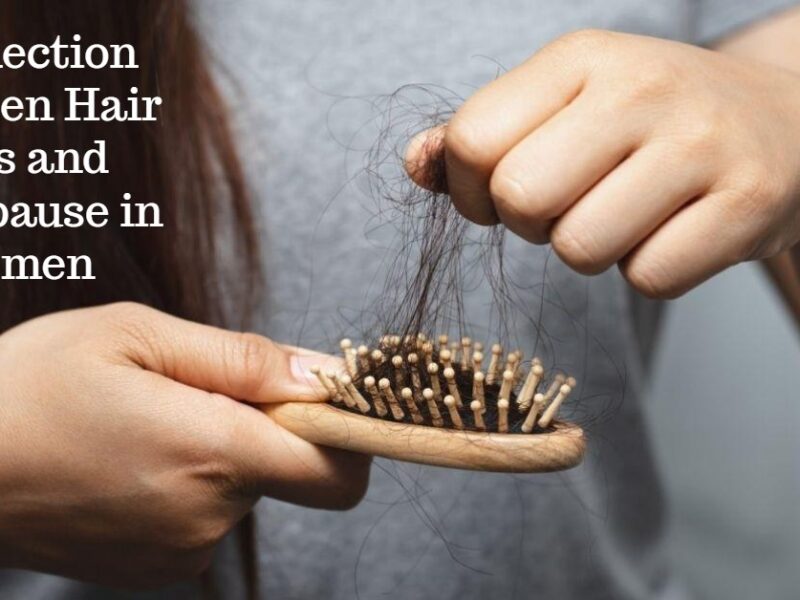
The Connection Between Hair Loss and Menopause in Women
Do menopause cause hair loss in women? The simple answer is that it does, among other things.
Menopause is a period of significant hormonal changes occurring in women between 40 and 50 years. Hair loss during menopause is one of the many physical problems. Other symptoms include hot flashes, nighttime sweats, mood swings, sleeplessness, and vaginal dryness.
Table of Contents
Normal Hair Loss
Hair loss in women is when a woman loses a lot of hair unexpectedly. Humans shed 50 to 100 single hairs per day on average. Hair shedding is a natural occurrence in which some hair falls out, and others grow back. Hair loss is when the balance gets disrupted — when less hair grows, but more hair falls out. Hair shedding, however, is not the same as hair loss.
What Is The Relationship Between Menopause And Hair Loss?
Examine your body’s hormone levels before entering menopausal years. Hair loss during menopause is understood. Hormonal changes are the cause of hair loss and other symptoms of menopause. The number of sex hormones produced by the ovaries decreases as people get older. Numerous physical changes occur as the body reacts to hormone variations. Hair loss during menopause occurs because of a reduction in estrogen and progesterone levels.
Tips To Handle Hair Loss during Menopause
Hair loss is almost always associated with hormonal changes in women going through menopause. However, hair loss during menopause is a result of other factors. Extremely high-stress levels, illnesses, or a deficiency of certain nutrients are just a few examples. Thyroid tests and or a complete blood count are both diagnostic blood tests that can help rule out other causes of hair loss. Hair loss can make you feel unfit for how you look, but it’s not a permanent condition. You can also take action to treat hair loss and improve the quality of your hair. Keep your hair healthy and strong during menopause using these tips.
Stress-Reduction
Avoid stress to keep your hormonal imbalances under control. Reduced estrogen production can change the chemistry of your brain, causing mood swings, anxiety, and depression. Regular exercise can also help reduce stress and prevent hair loss during menopause.
Work out
A healthy lifestyle includes regular exercise. Daily exercise, you will feel stronger and happier. It also helps prevent other menopause symptoms such as mood oscillations, weight gain, and insomnia. These factors are essential to maintain hormonal balance and healthy hair growth. Working out helps prevent hair loss during menopause.
Eat Healthily
The best way to prevent hair loss during menopause is to eat a well-balanced, low-fat diet. Each meal should contain an adequate amount of whole grains, fruits, and vegetables. Olive oil and sesame oil is a part of your diet. Taking vitamin B6 and folic acid supplements, as well as drinking green tea, may help to restore hair growth.
Conclusion
Hair loss during menopause occurs for several reasons, with hormonal changes being a big part of it. Talking with your doctors when you are approaching age can help you get prepared.
There are many ways to prevent hair loss during menopause. But most times, you can’t stop it due to genetics.





No Comment